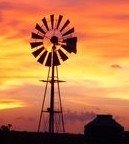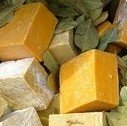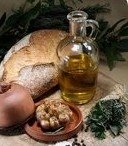Moonshine & Homemade Stills
by Jesse Taylor
(Ohio, USA)
Making a Still, which is short for "Distillery", is quite easy. You don't need lots of copper unless you're going to be drinking the end product. All it really takes is an old pressure cooker and about six feet of two different sizes of copper pipe. I can tell you how to do it, if you're interested.
Alcohol will run an engine. I'm not a mechanic, so I don't know anything about any carburetor or mechanical adjustments you may have to make to compensate for the difference in the explosive force between alcohol and gasoline, but I do believe you have to add things to the alcohol so you don't ruin your engine when using it with this new fuel. I think alcohol requires the addition of substances to help lubricate the valves and cylinders, a lead substitute, just to name one possible additive. A mechanic should be consulted about such things.
What seems to be keeping people from using alcohol based fuel instead of petroleum based fuel is the one main drawback to the production of alcohol. To put it simply, you cannot distill a gallon of alcohol, then use that same gallon to alcohol as fuel to heat your still and make, let's say, a gallon and a half of alcohol, next time. If you did try to use that gallon of alcohol, you would have to supplement it with an additional fuel source. You would not get enough energy from it to let you compound your next attempt at production. In this way, it's a process of diminishing returns. You must have a separate fuel source to distill your alcohol.
One of the ways the "Reveneurs" used to find the old "Moonshiners" was to look for areas where the woods had been cleaned by the cutting of firewood. It takes a lot of wood to fire up a still...and I mean a lot of wood. I know this because my very own Grandfather was a professional moonshiner. (My Dad dabbled in it, but not to sell any.)
Distilling requires that the alcohol already be present in the material being distilled. You're not producing alcohol from a substance, you're only removing the alcohol that's already present. How does the alcohol become present? Simple, you ferment whatever you plan to use, be it apples, corn, or some other vegetable matter. Simply put, you make "wine", then you distill this wine, plus the vegetable matter, and that takes the alcohol out of it, leaving most of the water behind in the still pot.
What do you do with this left over water and vegetable matter? Depends on what it is. If it's corn or fruit, it's now going to be cooked corn or fruit. You might feed it to your chickens or hogs, depending on the size of your flock or herd. It's going to have a distinctive odor to it, make no mistake. That's another way the old Reveneurs used to find the stills. They just smelled for them. (Even if you flushed the spent "mash" down a nearby stream, you can't help but spill some of that stuff. It will stink up the creek bank all the way back to your still.)
You can use the water for your plants and plow the spent solids into your soil, I suppose.
Anyway, it will take you between two and three weeks to ferment a "batch" of mash. That is, if you want to get the optimum yield of alcohol from that batch. Let's say you did ferment a 40 gallon barrel full and ran that through your still. How much alcohol could you, reasonably, expect to get? You can only expect about a 25% return. That means you might get 10 gallons of alcohol out of 40 gallons of mash. How much alcohol do you need to last you until the next "batch" is ready to "run" through the still? Do you have the space to keep a constant supply fermenting? Do you have the time and fuel to distill the alcohol on a regular basis?
How legal would such a thing be? Well, as a free American, you should be able to produce anything you want to use. You may not be able to sell it to anyone, but you should have the freedom to produce it and use it for your own purposes. Of course, just how much freedom you can enjoy in this "Land of the Free" may be a hotly contested point between you and your elected law makers.
These fine folks may have already rendered your freedom to distill your own alcohol to be null and void. It's a topic you may have to take up with your local Sheriff, at some point.
If anyone is interested in the "ins and outs" of the old time way of moonshining, I can tell you quite a few things about how it used to be at my house.
-Jesse Taylor
Due to the popularity of this page, I have added a page on How to Make Moonshine





